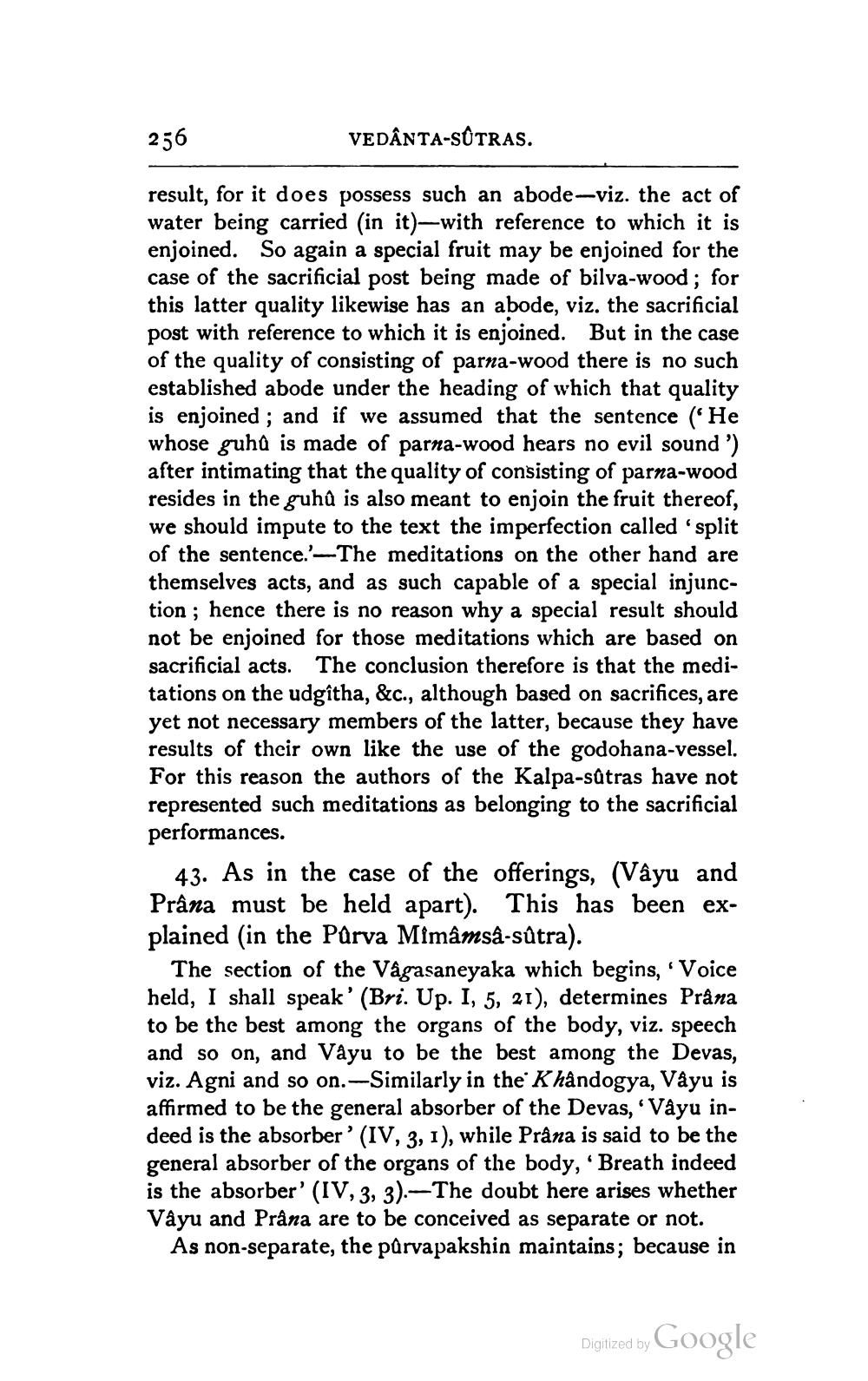________________
256
VEDANTA-SUTRAS.
result, for it does possess such an abode-viz. the act of water being carried (in it)-with reference to which it is enjoined. So again a special fruit may be enjoined for the case of the sacrificial post being made of bilva-wood; for this latter quality likewise has an abode, viz. the sacrificial post with reference to which it is enjoined. But in the case of the quality of consisting of parna-wood there is no such established abode under the heading of which that quality is enjoined; and if we assumed that the sentence ('He whose guhû is made of parna-wood hears no evil sound') after intimating that the quality of consisting of parna-wood resides in the guhû is also meant to enjoin the fruit thereof, we should impute to the text the imperfection called 'split of the sentence.'-The meditations on the other hand are themselves acts, and as such capable of a special injunction; hence there is no reason why a special result should not be enjoined for those meditations which are based on sacrificial acts. The conclusion therefore is that the meditations on the udgîtha, &c., although based on sacrifices, are yet not necessary members of the latter, because they have results of their own like the use of the godohana-vessel. For this reason the authors of the Kalpa-sûtras have not represented such meditations as belonging to the sacrificial performances.
43. As in the case of the offerings, (Vâyu and Prâna must be held apart). This has been explained (in the Pârva Mîmâmsâ-sûtra).
The section of the Vagasaneyaka which begins, 'Voice held, I shall speak' (Bri. Up. I, 5, 21), determines Prâna to be the best among the organs of the body, viz. speech and so on, and Vâyu to be the best among the Devas, viz. Agni and so on.-Similarly in the Khândogya, Vâyu is affirmed to be the general absorber of the Devas, 'Vâyu indeed is the absorber' (IV, 3, 1), while Prâna is said to be the general absorber of the organs of the body, 'Breath indeed is the absorber' (IV, 3, 3).—The doubt here arises whether Vâyu and Prâna are to be conceived as separate or not. As non-separate, the purvapakshin maintains; because in
Digitized by
Google




